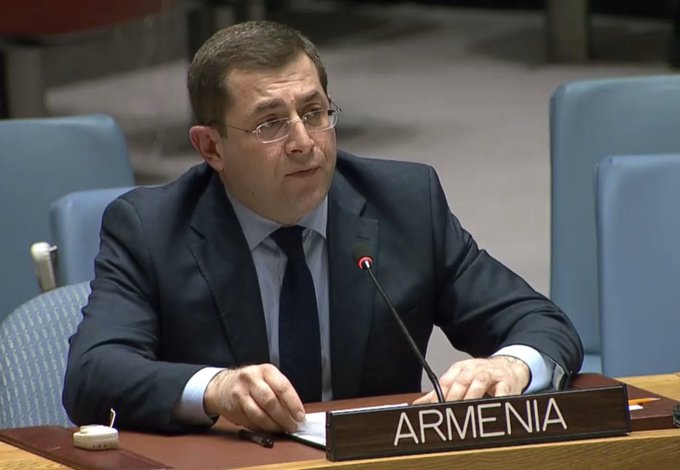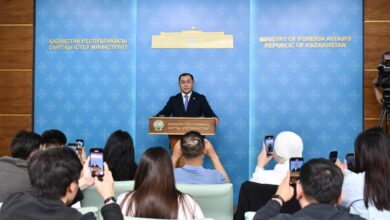
Armenia has been taking consistent measures to consolidate international efforts aimed at prevention of the crime of genocide, Armenia’s Permanent Representative to the UN Mher Margaryan said at the UN Security Council Open Debate on “Peacebuilding and sustaining peace: transitional justice in conflict and post‐conflict situations.”
“Regrettably, we still continue witnessing hate crimes and atrocities against ethnic and religious groups, state-led policy of hatred, racial and ethnic profiling, glorification and justification of past crimes and dehumanization of victims,” he said.
“The genocidal acts perpetrated against Christians, Yazidis and other communities by terrorist organizations committed in Syria and Iraq are stark reminders that denial of the crime and dehumanization of victims do not merely belong to history,” Armenia’s Permanent representative stated.
Mher Margaryan noted that the Armenian nation has gone through the horrors of genocide in the beginning of the 20th century and still continues to face the challenges of denial and justification of the past crimes.
Hence, he said, Armenia has been taking consistent measures to consolidate international efforts aimed at prevention of the crime of genocide.
“Justification of the Armenian genocide at the highest level by means of denigrating and insulting the dignity of the victims, qualifying it as “the most reasonable act” and manufacturing alternative historical narratives profoundly hampers the efforts to ensure the realization of the right to truth and non- recurrence,” Amb. Margaryan stated.
“Armenia is committed to supporting the efforts of the United Nations to promote transitional justice as an important element of the UN prevention agenda. Over the years we have initiated a number of Resolutions related to the prevention of genocide. Upon Armenia’s initiative the General Assembly designated 9 December as the International Day of Commemoration and Dignity of the Victims of the Crime of Genocide and of the Prevention of this Crime,” he reminded.
“Recognition and condemnation of the past atrocities is vital for preventing identity-based crimes, protecting the universality of human rights and achieving genuine reconciliation and sustainable peace,” he concluded.








